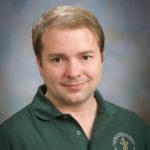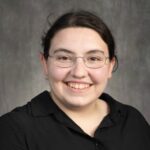The Borlee laboratory, as part of the Center for Vector-Borne Infectious Diseases (CVID) and Center for Metabolism of Infectious Diseases (C4MInD) at Colorado State University, studies environmental sensing and regulation of bacterial behaviors in the context of host-pathogen interactions and host-associated bacterial communities. Biofilm formation is one such behavioral response that allows bacteria to survive stressful conditions in the environment and persist during chronic infections in humans. We study a variety of bacterial pathogens and endosymbionts of mosquitoes and midges. Our primary focus has been on Pseudomonas aeruginosa and Burkholderia pseudomallei as they are highly amenable to genetic, molecular, and developmental studies of biofilm formation and pathogenicity. The laboratory conducts research on the unanswered questions concerning the composition, function, and developmental control of biofilm matrix components and their role during infection of P. aeruginosa and B. pseudomallei. Some additional areas of research in the laboratory include c-di-GMP-mediated gene regulation, biofilm-associated disease, quorum sensing, antibiotic resistance, and development of strategies to prevent and treat infections (e.g. vaccines, drug therapies, and paratransgenic control of vector borne diseases).
People
news and updates view all
Bacteriologist Brad Borlee studies microbe-microbe interactions to find new antibiotic treatments for and better break down biofilm infections.
Brad Borlee was granted an 2023 Advanced Industries Proof of Concept Grant to address the significant global concern of bacterial diarrhea through the development of a therapeutic that mitigates the risk of antibiotic resistance.
Boettcher Scholar and Borlee Lab student researcher Abigail Fennell was awarded NSF Graduate Research Fellowship, which will support her PhD in Biomedical Engineering at John Hopkins University upon graduation.
contact information
Office: Research Innovation Center (RIC) room D122
Lab: Research Innovation Center (RIC) room D143
(970) 492-4415
[email protected]


